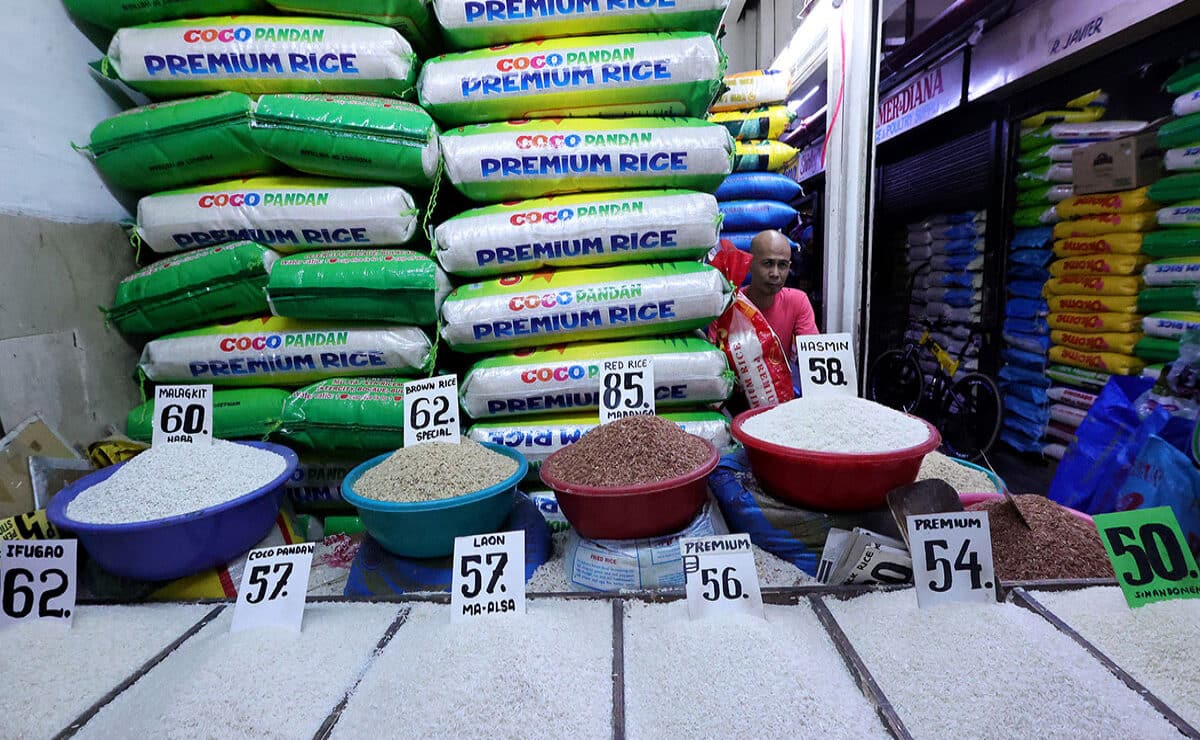
NEW RICE POLICY. Rice vendor Eddie Pascual waits for customers at Marikina Public Market as the Department of Agriculture says it will announce “very soon” the maximum suggested retail price for imported rice to help lower prices. —GRIG C. MONTEGRANDE
MANILA, Philippines — Farmer groups have urged Congress to summon the country’s economic managers to explain why rice prices remain high despite government efforts to bring them down.
In a statement on Thursday, the Federation of Free Farmers (FFF) and Magsasaka party-list (MPL) questioned why Agriculture Secretary Francisco Tiu Laurel Jr. has been the only official consistently attending the hearings of the Quinta committee on the issue, while other key officials remain absent.
“This is puzzling. The secretaries of finance, economic planning, and trade convinced the President to cut rice tariffs by 20 percent through Executive Order No. 62 last June 20, 2024,” FFF Chairman Leonardo Montemayor said in the statement.
“They were supremely confident that retail prices would fall by P7 per kilo by as early as August. Did they not have contingency measures if prices did not decrease, as is the case today?” he asked.
According to the farmer groups, the Department of Agriculture is considering declaring a food security emergency in rice, which would allow the National Food Authority (NFA) to release more stocks into the market.
READ: DTI says food security emergency declaration out in 2 days
However, MPL Chairman Argel Joseph Cabatbat warned that flooding the market with cheaper government rice could hurt local farmers, especially as the harvest season begins in February.
“If the NFA releases too much rice or sells it at a low price, farmers will be forced to sell their palay to traders at break-even or even lower prices,” Cabatbat said.
READ: DA mulls NFA rice buffer stock release amid high prices
The groups also challenged the National Price Coordinating Council on its January 14 recommendation that retail prices had increased to a level requiring emergency intervention.
They pointed out that rice prices have started to drop, questioning the timing and justification for declaring an emergency.

